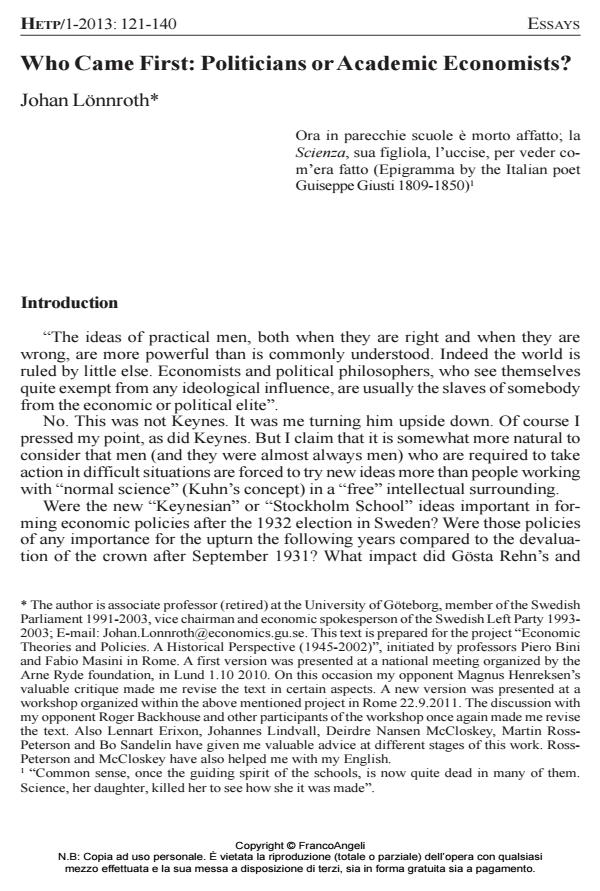Who Came First: Politicians or Academic Economists?
Titolo Rivista HISTORY OF ECONOMIC THOUGHT AND POLICY
Autori/Curatori Johan Lonnroth
Anno di pubblicazione 2013 Fascicolo 2013/1
Lingua Italiano Numero pagine 20 P. 121-140 Dimensione file 111 KB
DOI 10.3280/SPE2013-001007
Il DOI è il codice a barre della proprietà intellettuale: per saperne di più
clicca qui
Qui sotto puoi vedere in anteprima la prima pagina di questo articolo.
Se questo articolo ti interessa, lo puoi acquistare (e scaricare in formato pdf) seguendo le facili indicazioni per acquistare il download credit. Acquista Download Credits per scaricare questo Articolo in formato PDF

FrancoAngeli è membro della Publishers International Linking Association, Inc (PILA), associazione indipendente e non profit per facilitare (attraverso i servizi tecnologici implementati da CrossRef.org) l’accesso degli studiosi ai contenuti digitali nelle pubblicazioni professionali e scientifiche.
In this text an analysis is presented concerning who were first to form and accept new macroeconomic policy ideas in Sweden: economic politicians or professional economists. Those ideas were later to be accepted in international mainstream economics. Four paradigmatic shifts, all of them connected to economic - unemployment and/or inflation - crises, are studied: 1) The so called New Economics in the 1930s; 2) the forming of the Rehn & Meidner model and its implementation in the 1940s to 1960s; 3) the gradual shift from Keynesianism to monetarism and norm based theory during the last three decades of the 20th century; 4) the effects on economic thinking of the crisis in 2008/09. The result is that in cases 1, 2 and 4 initiatives to change policies rather came from politicians than from academic professional economists. In case 3 the result is more uncertain.
Parole chiave:Sweden, politicians, economists, ideas
Jel codes:A11, B22
Johan Lonnroth, Who Came First: Politicians or Academic Economists? in "HISTORY OF ECONOMIC THOUGHT AND POLICY" 1/2013, pp 121-140, DOI: 10.3280/SPE2013-001007